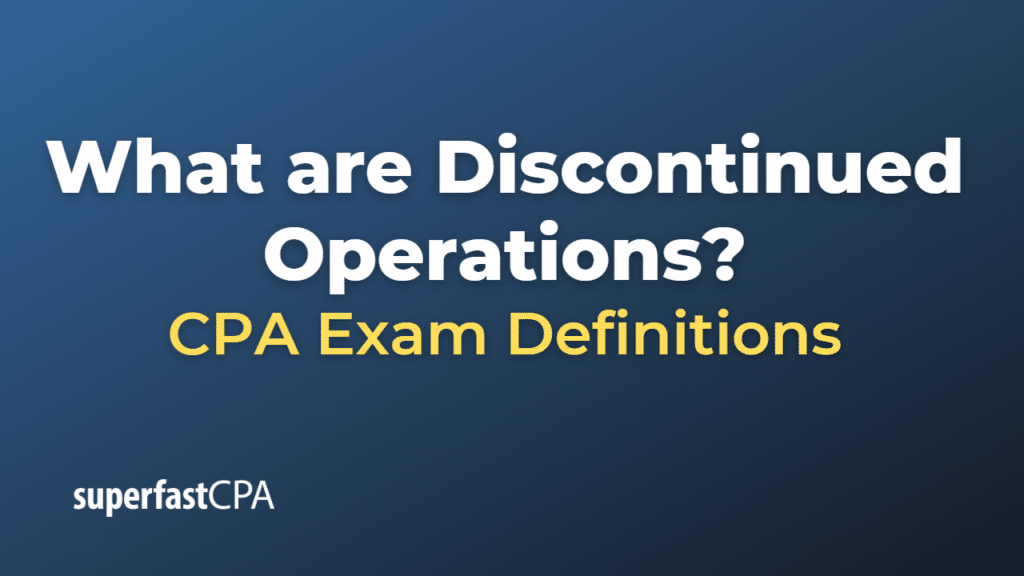Discontinued Operations
Discontinued operations refer to parts of a company’s business that have been sold, disposed of, or are planned for sale. They represent a significant part of the company’s operations and must be distinguishable from the company’s continuing operations.
The Financial Accounting Standards Board (FASB) and the International Financial Reporting Standards (IFRS) provide guidelines on how discontinued operations should be reported in a company’s financial statements.
Under these guidelines, the income (or loss) from discontinued operations, along with any gain (or loss) on the disposal of the discontinued operations, is typically reported separately from the income of continuing operations on the income statement. This separation provides more clarity to investors, allowing them to differentiate the performance of ongoing business activities from those that are discontinued.
In addition to the income statement, the company also needs to report the assets and liabilities related to discontinued operations separately on the balance sheet, at least until the disposal is completed.
Remember, the classification of a segment of the business as a discontinued operation is significant. It signals to investors that the company has made a strategic decision to shift its focus away from that part of the business, and it can have a significant impact on the company’s reported financial performance.
Example of Discontinued Operations
Let’s say a company named “Foodie Delights Inc.” operates in two major segments: 1) Restaurant operations and 2) Packaged food production.
After several years of lackluster performance in the restaurant segment, the company’s board of directors decides to exit this business to focus solely on the packaged food production segment, which is more profitable and better aligns with the company’s long-term strategic goals.
The company begins by closing or selling its restaurants and discontinuing its restaurant operations. In this situation, the restaurant business qualifies as “discontinued operations” because it represents a major line of business and is distinguishable from the ongoing packaged food production segment.
In its financial reporting for the period in which this decision was made and action began, Foodie Delights Inc. would need to separate the financial results of the restaurant business from the results of its continuing operations.
On the income statement, the company would report the revenues, expenses, pre-tax profit or loss, and relevant income tax expense related to the restaurant business separately from its continuing operations. Any gain or loss related to the disposal of the restaurant business (such as from selling restaurant properties) would also be reported as part of discontinued operations.
On the balance sheet, any remaining assets and liabilities related to the restaurant business would also be reported separately, as long as the disposal process is not yet completed.
By presenting the discontinued operations separately, Foodie Delights Inc. provides its shareholders and potential investors with a clearer understanding of the financial performance of its continuing operations, without the noise from the winding-down restaurant business.













